Election results 2017: How to judge who's had a good night
- Published
Here's a guide to measuring whether or not it's been a good or bad night, leader-by-leader...
Theresa May
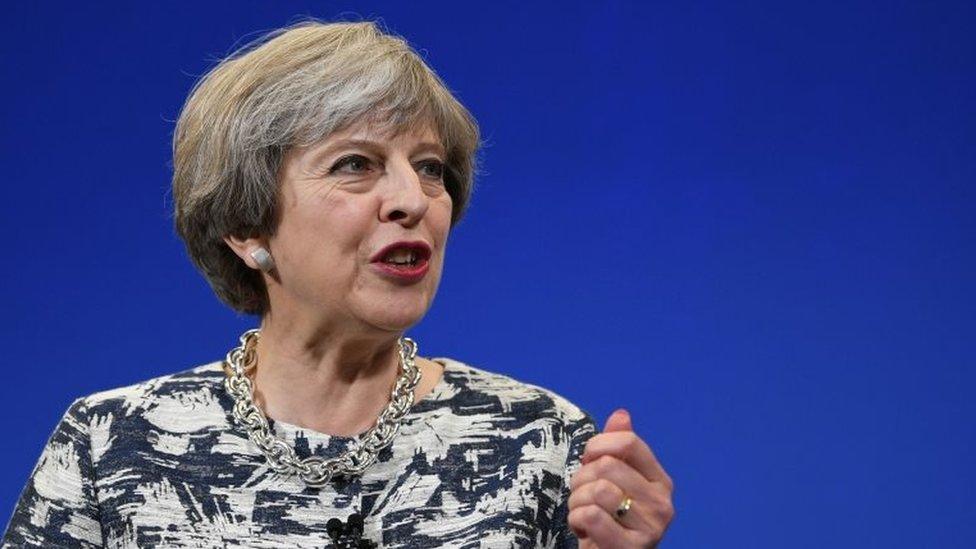
The Conservative leader called this election to strengthen her hand in Brexit negotiations and to give her more control over her rebellious backbenchers. If she was to get a majority of 50 seats or more, job done.
However, some analysts have said she would need a buffer zone of 70 or 80 seats to get a compromise deal on Brexit past her hardline, Eurosceptic right-wingers, if it comes to that.
If her 17-seat majority is increased to 20 or 30, serious questions will be asked about why she didn't do better. If she manages to increase it by only a handful of MPs or, worse, loses seats, her electoral gamble will have failed and she will be in a far weaker position than she was at the start of the campaign.
Job prospects: If Mrs May loses the election, then the presumption would be she has to quit. If she only manages to hold on to the existing numbers of Conservative MPs, or increases her majority by a modest amount, it would at the least be the end of her honeymoon period.

Jeremy Corbyn
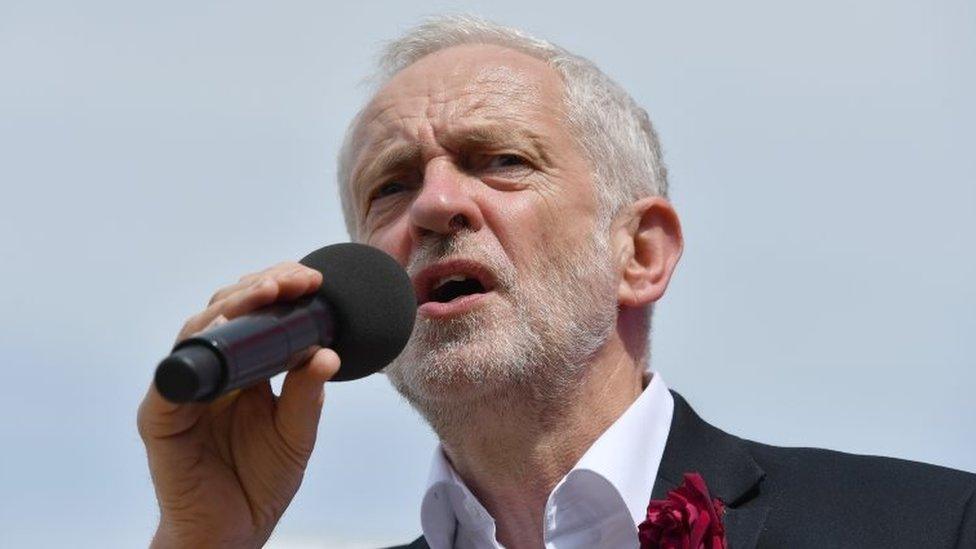
The other prize at stake in this election for the Labour leader, apart from the keys to Downing Street, is the chance to permanently shift his party to the left, and put the membership, rather than the MPs, in the driving seat.
If he gets more than the 30.4% vote share Ed Miliband won in 2015, he and his team will claim that project is firmly on track and there is popular support for his policies.
If Labour pegs the Tories back to a handful of gains, or gains a decent chunk of seats itself, Mr Corbyn will have exceeded many expectations and will be in a much stronger position.
If, however, Labour loses a lot of seats to the Tories in its traditional working class heartlands, then the party's "moderate" wing, who have kept quiet during the campaign, will be baying for his blood once again and it could be a very ugly autumn for Labour.
Job prospects: The campaign has gone well for Mr Corbyn and if he avoids losses, or gains seats, he will be in a much stronger position at Westminster. If he loses seats, the question then becomes whether he can hang on to ensure there is a successor who shares his brand of politics.

Nicola Sturgeon

Another strong performance by the SNP could give Scotland's first minister a mandate to hold a second independence referendum and resist what she calls the "extreme Brexit" being pursued by the Conservatives.
However, it will be difficult for the party to do better than it did at the 2015 general election, when it won 56 out of 59 seats. The Conservatives and Labour have their eyes on a handful of vulnerable SNP seats.
Job prospects: Not likely to be affected by this election - unless the Tory revival in Scotland is a lot stronger than anyone is predicting - particularly as her powerbase is at Holyrood, not Westminster.
Sorry, your browser cannot display this content.

Tim Farron
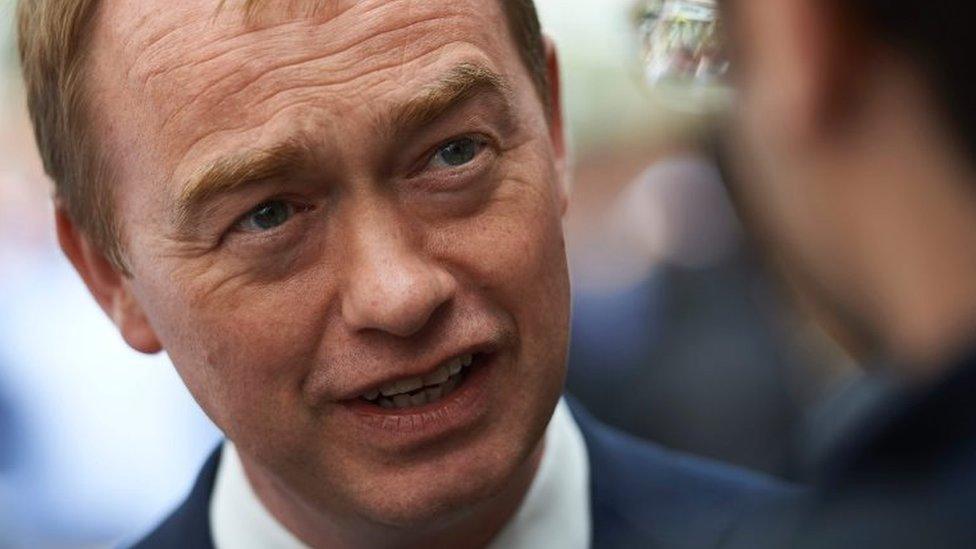
The Lib Dem leader has had a bumpy campaign, not helped by the fact that it did not turn out to be a "Brexit election," when that was what he had planned to talk about.
He has set himself a target of doubling the number of Lib Dem MPs from nine to 18. Anything less than that will be a disappointment, but probably not fatal to his chances of remaining party leader. Anything more and he and his party could be real players in the new Parliament.
Job prospects: If the Lib Dems lose seats then he could be forced out. He is also facing a strong Tory challenge in his own Westmorland and Lonsdale seat.

Paul Nuttall

If UKIP defies predictions, and the polls, by winning a seat, then Mr Nuttall will be hailed as the party's saviour. If it drops below the 5% it had been polling at, then it could spark another round of blood-letting and his departure from the top job.
Job prospects: UKIP is always liable to erupt into internal warfare, so you never know. Mr Nuttall was also a reluctant leader - he initially rejected calls to stand - so may feel he has done all he can and it's someone else's turn.

Caroline Lucas and Jonathan Bartley
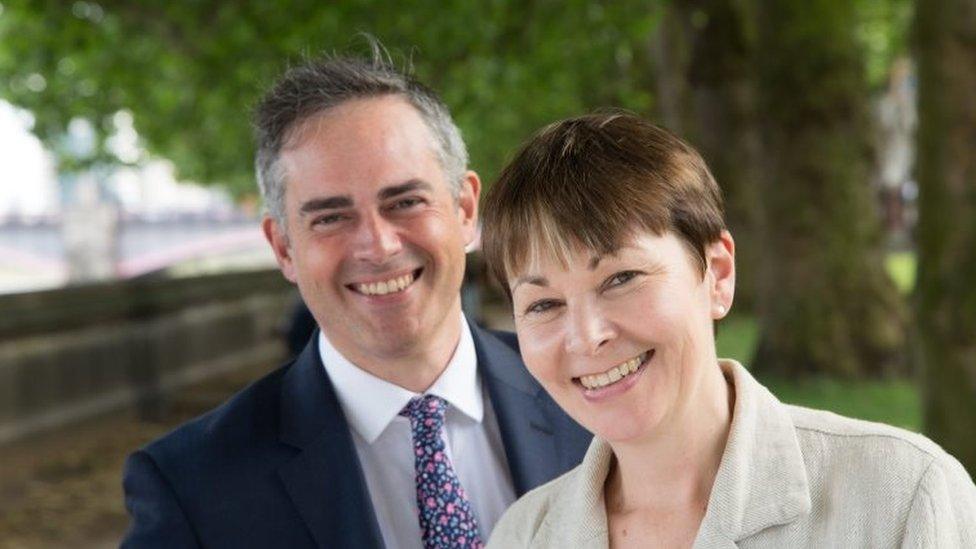
The pioneering job share between the Green Party's best-known figure Caroline Lucas and Jonathan Bartley appears to have worked out pretty well at this election.
Job prospects: The joint leadership arrangement could continue even if Ms Lucas loses her Brighton Pavilion seat, at least until the party's next scheduled leadership election.

Leanne Wood
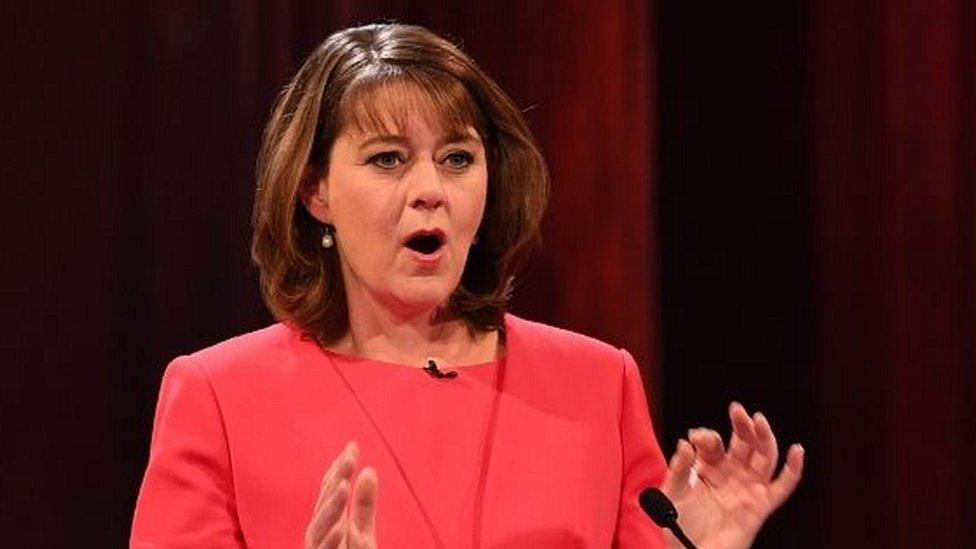
This election is a test of whether the Plaid Cymru leader's strategy of reaching out to disaffected, anti-Brexit Labour voters is working. Some will argue that if the party can't take seats from Labour now, it never will.
Job prospects: If Plaid loses seats, Leanne Wood risks being forced out as leader. If it remains on three MPs, she will probably be safe from a coup.
If the party gains one, or even two seats, it will be seen as a great result. This is really a secondary election for the party and as a member of the Welsh Assembly, rather than an MP at Westminster, Ms Wood is not facing the electorate herself.